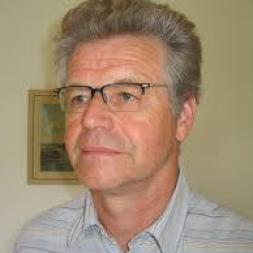
Ulrike Feudel (Universitat Oldenburg, Germany)
Biography
Ulrike Feudel is a pioneer in multistable systems, i.e. systems possessing several coexisting stable states for given external (e.g. environmental) conditions. She developed methods to analyze such systems including long chaotic transients caused by large chaotic saddles comprising one or more different space-time patterns. She uncovered that these transients are the dominating dynamics in multistable systems and provided the mathematical basis of how multi-stability appears in nonlinear dynamical systems.
She went on to apply these ideas to important geophysical problems that include extreme events, plankton dynamics, tipping points for the thermohaline ocean circulation, noise-induced tipping points in deep ocean convection and marine ecosystems. Both the breadth of her work – spanning geoscience and ecology – as well as its depth – from fundamentals to applications have been qualified as “staggering”.
Ulrike Feudel has been involved in the Nonlinear Processes division for several decades and has been an editor of the NP journal since 2004. She has authored over 160 peer reviewed papers and in 2006 published a book “Strange Nonchaotic attractors.” She has organized numerous workshops and has supervised two dozen MSc and PhD theses.
Rate-dependent critical transitions in ecosystems
We demonstrate that predator-prey systems can exhibit population collapse or population outbreak if environmental change has either a too fast rate or depends on the history of extreme events [1,2,3].
[1] Vanselow et al., (2019) When very slow is too fast - collapse of a predator-prey system. J. theor. Biol. https://doi.org/10.1016/j.
[2] Vanselow et al., (2024) Rate-induced tipping can trigger plankton blooms. Theor. Ecol. https://doi.org/10.1007/
[3] Basak et al., (2024) When do multiple pulses of environmental variationtrigger tipping in an ecological system. Chaos: An Interdisciplinary Journal of Nonlinear Science https://doi.org/10.1063/5.












